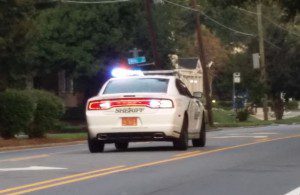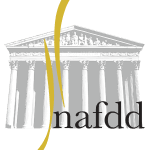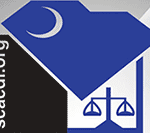Driving While License Revoked (DWLR)
 Driving While License Revoked (DWLR) can be a relatively serious traffic offense, especially if the reason for your initial revocation was for an impaired driving offense. The statute lays out the punishments for Driving While License Revoked fairly clearly. The statute, in relevant part, reads, “Except as provided in subsection (a1) of this section, any person whose drivers license has been revoked who drives any motor vehicle upon the highways of the State while the license is revoked is guilty of a Class 3 misdemeanor unless the person’s license was originally revoked for an impaired driving revocation, in which case the person is guilty of a Class 1 misdemeanor. Upon conviction, the person’s license shall be revoked for an additional period of one year for the first offense, two years for the second offense, and permanently for a third or subsequent offense.” As you can see, the penalties can be fairly stiff. In addition to getting charged with a misdemeanor, you could also face losing your license for and additional year, two years, or even permanently.
Driving While License Revoked (DWLR) can be a relatively serious traffic offense, especially if the reason for your initial revocation was for an impaired driving offense. The statute lays out the punishments for Driving While License Revoked fairly clearly. The statute, in relevant part, reads, “Except as provided in subsection (a1) of this section, any person whose drivers license has been revoked who drives any motor vehicle upon the highways of the State while the license is revoked is guilty of a Class 3 misdemeanor unless the person’s license was originally revoked for an impaired driving revocation, in which case the person is guilty of a Class 1 misdemeanor. Upon conviction, the person’s license shall be revoked for an additional period of one year for the first offense, two years for the second offense, and permanently for a third or subsequent offense.” As you can see, the penalties can be fairly stiff. In addition to getting charged with a misdemeanor, you could also face losing your license for and additional year, two years, or even permanently.
If you are caught driving with your license revoked, you may be facing a Class 3 or Class 1 misdemeanor, depending on the reason that your license was revoked. If you have a license revoked for an impaired driving violation, then you are looking at a Class 1, otherwise, you are facing a Class 3. The driving while impaired revocation includes revocations for reasons such as for refusal to submit to chemical analysis, pretrial revocation, revocation for habitual impaired driving, etc. Impaired driving convictions are not just for convictions for DWI’s, but is much broader.
In addition to the heightened penalties for impaired driving revocations, there can be other effects as well. The statute states that the person will also be subject to other penalties. It reads, “If the person’s license was originally revoked for an impaired driving revocation, the court may order as a condition of probation that the offender abstain from alcohol consumption and verify compliance by use of a continuous alcohol monitoring system, of a type approved by the Division of Adult Correction of the Department of Public Safety, for a minimum period of 90 days.” This ability of the court to require you to submit to continuous alcohol monitoring can be a hassle, and frankly, can get expensive, since you will have to pay the installation and monitoring fees for the continuous blood alcohol monitoring device.
One potential defense to a Driving While License Revoked charge is that the person with license revoked was eligible to have a driving privilege at the time of the privilege. Notice that the language of the statute quoted above in the first paragraph included the phrase, “except as provided in subsection (a)(1),” Here is the language from subsection (a)(1) that it is referring to: “A person convicted under subsection (a) shall be punished as if the person had been convicted of driving without a license under G.S. 20-35 if the person demonstrates to the court that either subdivisions (1) and (2), or subdivision (3) of this subsection is true:
(1) At the time of the offense, the person’s license was revoked solely under G.S. 20-16.5; and
(2) a. The offense occurred more than 45 days after the effective date of a revocation order issued under G.S. 20-16.5(f) [which requires that a person wait 45 days before applying for a limited driving privilege] and the period of revocation was 45 days as provided under subdivision (3) of that subsection; or
b. The offense occurred more than 30 days after the effective date of the revocation order issued under any other provision of G.S. 20-16.5 [which requires a 30 day waiting period before a person can apply for a limited driving privilege]; or
(3) At the time of the offense the person had met the requirements of G.S. 50-13.12, or G.S. 110-142.2 and was eligible for reinstatement of the person’s drivers license privilege as provided therein. [This section refers to a revocation for failure to make child support payments or failure to comply with a subpoena in a child support case. If you have made the child support payments or have complied with the judges terms, then you are eligible to have your license reinstated.]
Another reason that people typically get their license revoked is a failure to appear in court, or a failure to pay a fine or comply with a court’s punishment for a motor vehicle offense. The statute that empowers the Division of Motor Vehicles to do this states, “The Division must revoke the driver’s license of a person upon receipt of notice from a court that the person was charged with a motor vehicle offense and he: …failed to appear, after being notified to do so, when the case was called for a trial or hearing; or …failed to pay a fine, penalty, or court costs ordered by the court.” If you have an old traffic ticket that you failed to show up to court for, you should receive a notice from the DMV informing you that your privilege to drive has been suspended. However, sometimes the notice is lost in the mail, and the person is driving for years with a revoked license and does not even realize it.
Many times, people get on the treadmill of getting their license revoked for one charge, and then getting continuous DWLRs. This is not good for a person’s criminal record, and can lead to greater problems down the road. If your license is revoked and you are convicted of Driving While License Revoked, your license will be revoked for an additional year if it is your first time. If you are convicted of a second DWLR, then your license will be revoked for an additional two years. Finally, if you are convicted a third time (or any subsequent time), your license will be revoked permanently. If you are able you should seek to get your license back to avoid getting this charge every time you are pulled over.
Generally, if your license has been revoked because of a first time DWLR, you can apply for a license after 90 days. If your license has been revoked because of DWLR for the second time, you can apply for a license after 1 year. If your license has been revoked permanently, then you can apply after three years. When a license is restored, you are not necessarily out of danger. The statute states that, “The restoree of a revoked drivers license who operates a motor vehicle upon the highways of the State without maintaining financial responsibility as provided by law shall be punished as for driving without a license.” If a person whose license was revoked has his or her license restored, and he or she drives in this state without maintaining the minimum required insurance coverage, that person shall be punished as for driving without a license. So if your license is restored, be sure that you at least have the minimum level of insurance required by law. Otherwise, you could have your license revoked again, and you will have to go through the process yet again in order to get your license back. This is an important part of the law, because you may have allowed your auto insurance to lapse while your license was revoked. After you get your license back, you must make sure that you get your insurance reinstated as well.
The punishment that you can be sentenced to can vary depending on your prior record level. Nevertheless, whatever your prior record level, a charge of DWLR is a fairly serious traffic offense. While most traffic offenses are considered infractions, it is considered a crime. This merits the attention of a lawyer to make sure that your rights are protected. It is important to get this charge resolved, so that your problems do not “snowball” and become worse. Whatever the reason that you were charged with Driving While License Revoked, we would like to help you. Our firm prides itself on the personal service that each client receives. We will work hard on your case, and will keep you informed of our progress. If you have any questions about your charge, please give us a call and we will be glad to talk about your case. We hope that you will choose us to help you get your matter resolved.
How Can We Help You?
Oranizations
American Association of Premier DUI Attorneys (2015) State Ambassador for NC
America's Top 100 Criminal Defense Attorneys (2017)
Better Business Bureau (A+ rating) (2018)
Best Attorneys in America (2017)
Million Dollar Advocates Forum (2011)
National Academy of Criminal Defense Attorneys (2014)
National Advocacy for DUI Defense (2016)
National College for DUI Defense (2012)
National Trial Lawyers Top 100 (2012)
National Trial Lawyers Top 100 (2012)
SC Workers Compensation Educational Association (1989)
Super Lawyers (2012)












